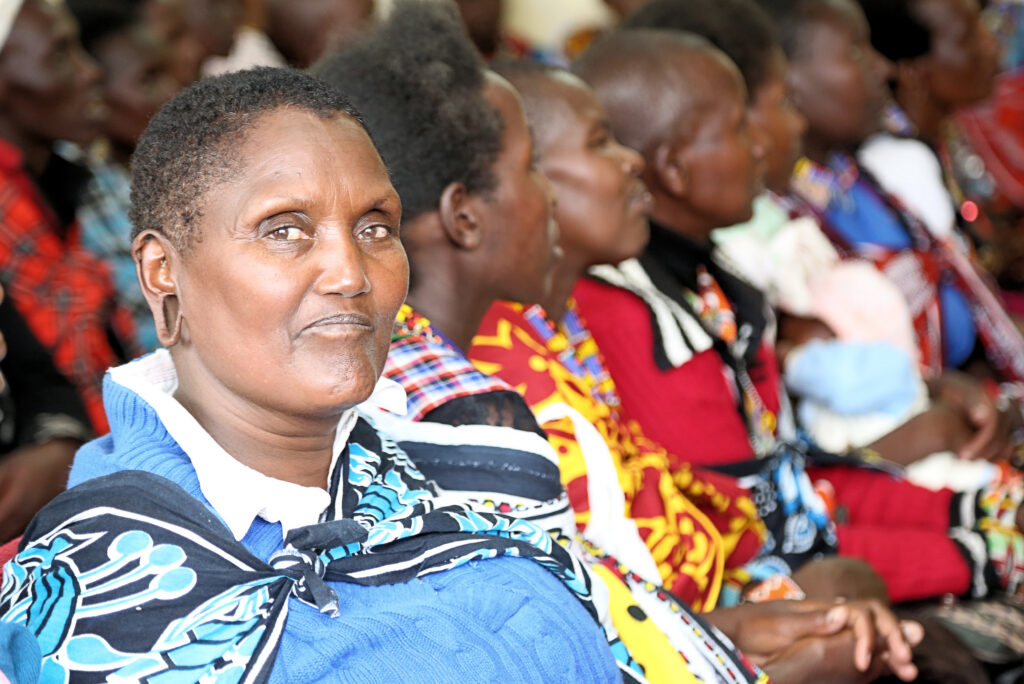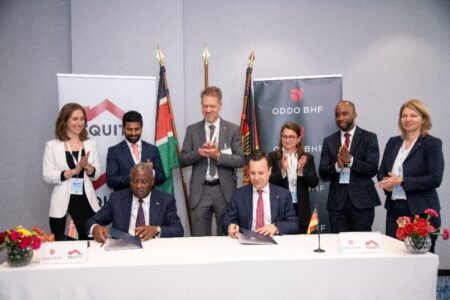- Across Africa, gender inequality in marriage, divorce, custody, and property rights is perpetuated by sex discrimination embedded in both legal systems and customary laws.
- Discriminatory family laws have profound impacts, increasing the risk of sexual and gender-based violence for women and girls.
- Laws in Cameroon, Nigeria, Senegal, South Sudan, Sudan, and Tanzania still allow child marriage.
Discrimination against women and girls remains widespread in family laws across Africa, according to new research by Equality Now. An analysis of 20 African countries reveals that gender inequality in marriage, divorce, custody, and property rights is perpetuated by sex discrimination embedded in both legal systems and customary laws. Despite some significant legal reforms, progress has been slow, inconsistent, and hindered by setbacks, lack of political will, and weak implementation.
The report, “Gender Inequality in Family Laws in Africa: An Overview of Key Trends in Select Countries,” highlights how overlapping and contradictory legal frameworks complicate the interpretation and application of family laws, creating significant challenges for harmonizing legal systems.
Discriminatory family laws have profound impacts, increasing the risk of sexual and gender-based violence for women and girls and making them more dependent and vulnerable by limiting their economic opportunities and decision-making power.
Full equality in family laws has not been achieved in any of the countries reviewed, which include Algeria, Angola, Botswana, Burundi, Cameroon, Côte d’Ivoire, the Democratic Republic of the Congo (DRC), Egypt, Ethiopia, Kenya, Malawi, Mozambique, Nigeria, Senegal, South Africa, South Sudan, Sudan, Tanzania, The Gambia, and Tunisia.
Africa is home to a rich array of ethnic, linguistic, and religious groups, each with distinct family law structures. Historically, communities developed intricate systems of customary laws governing family relations. The introduction of European legal systems and religions led to a blend of customary, religious, and statutory laws, creating a landscape of legal pluralism that continues to shape legislation and practice.
This complex legal patchwork is influenced by evolving social dynamics. Civil, customary, and religious laws, including Islamic and Christian canon laws, often overlap and conflict, with many provisions in religious and customary laws discriminating against women and girls.
Esther Waweru, co-author of the report and Senior Legal Advisor at Equality Now, explains, “Culture and religion frequently act as major impediments in the struggle for family law equality, stalling reforms. Claw-back clauses and retrogressive practices dilute the positive impact of progressive laws, and backlash from anti-rights movements threatens to reverse hard-won gains, particularly in eliminating child marriage and female genital mutilation.”
“Stagnation is also a problem, with governments pledging to reform discriminatory laws but failing to take meaningful action. In some cases, progressive family codes remain in limbo, awaiting enactment.”
Progress on Child Marriage, but Shortfalls Remain
Child marriage is one area where notable progress has been made. Absolute bans on marriage under 18 exist in Côte d’Ivoire, the Democratic Republic of the Congo (DRC), Egypt, The Gambia, Kenya, Malawi, and Mozambique. However, the persistence of child marriage in certain communities underscores the need for a multi-sectoral approach that raises awareness about the legal consequences and harms of child marriage.
Concerningly, laws in Cameroon, Nigeria, Senegal, South Sudan, Sudan, and Tanzania still allow child marriage. In Algeria, Angola, Botswana, Burundi, Ethiopia, South Africa, and Tunisia, the legal age of marriage is 18, but exceptions are permitted.
Marital Rape
Countries need greater protections against gender-based violence, especially intimate partner violence. Marital rape is not prohibited in Algeria, Kenya, Sudan, and The Gambia, while Northern Nigeria’s Penal Code allows marital rape and “corrective” assault within marriage.
In Tanzania, marital rape is only criminalized upon separation, and in Burundi, the penalty is under 30 days imprisonment or a fine. Tunisia’s law states a wife must fulfill her duties in line with ‘usages and customs,’ putting women at risk of marital rape, as a wife’s traditional role includes pleasing her husband sexually.
Malawi’s courts have stated that rape does not extend to marriage. Customary law presumes perpetual consent to sex within marriage, and Malawi’s civil law appears to support this by providing only limited circumstances in which a wife can deny her husband sex, such as poor health or legal separation.
Countries like Côte d’Ivoire, Mozambique, and South Africa can be commended for explicitly criminalizing marital rape. It is imperative that all nations introduce bans, accompanied by awareness-raising campaigns and accessible support services for survivors. Effective legal enforcement is crucial, along with comprehensive training for officials in the criminal justice, healthcare, and social service sectors.
Discriminatory Marriage Practices
In most African countries, civil marriage registration is a legal requirement governed by specific laws. However, women in customary and religious marriages face greater discrimination due to the lack of the same legal protections afforded to those in civil marriages. Same-sex partners also experience discrimination, as marriages and civil unions are largely reserved for heterosexual couples.
Polygamy is legally permitted in countries like Cameroon, Egypt, Kenya, Senegal, and South Sudan, with men allowed up to four wives in Sudan and Senegal. Although Côte d’Ivoire, Mozambique, and South Africa have statutory laws favoring monogamy, customary and religious laws continue to recognize polygamy without adequate protections for women. Harmful traditional practices, such as widow inheritance and surrogate marriage, also persist, treating women as property.
Discrimination in Divorce and Child Custody Laws
In countries like Sudan, husbands have more power to initiate divorce. In Algeria, women can only request a divorce in specific cases such as abandonment, violation of the marriage contract, or non-payment of alimony. In Sudan and Egypt, some no-fault divorces require women to pay financial compensation to their ex-husbands.
Reforms in child custody laws have been made in Angola, Botswana, Burundi, Cameroon, Côte d’Ivoire, the Democratic Republic of the Congo (DRC), Mozambique, and Senegal, ensuring guardianship rights for both parents regardless of marital status.
However, sex discrimination persists in countries like Senegal, where the father is the legal guardian regardless of the mother’s caregiving role. In Tunisia and Algeria, fathers retain legal guardianship even if the mother has custody. Additionally, in Algeria and Sudan, a mother’s custody rights are revoked upon remarriage, a rule not applied to men.
Matrimonial Property and Inheritance
Significant reforms have been made in matrimonial property laws in countries like Côte d’Ivoire, Kenya, Malawi, and South Africa, introducing provisions for the equitable distribution of matrimonial property. Ethiopia, Nigeria, South Africa, and The Gambia have laws recognizing the rights of married women to acquire, own, maintain, and dispose of their property.
Despite these advancements, some customary and religious laws still undermine women’s inheritance rights. In countries such as Algeria, Cameroon, Côte d’Ivoire, Egypt, Nigeria, South Sudan, Sudan, and Tunisia, women and girls receive less inheritance than men and boys.
Cultural biases further disadvantage women, influencing judicial decisions and leading to unequal distribution in cases of divorce and widowhood. For example, in Angola, customary laws often exclude wives from inheriting their deceased husband’s property, sometimes forcing widows from their matrimonial homes.
Aligning Family Laws with International Human Rights Standards
It is crucial for African family laws to align with international human rights standards. Many countries have ratified key treaties, such as the Convention on the Elimination of All Forms of Discrimination against Women (CEDAW) and the Protocol to the African Charter on Human and Peoples’ Rights on the Rights of Women in Africa (Maputo Protocol). However, the implementation and enforcement of these treaties remain inconsistent, with discriminatory family laws and policies still present in statutes and practices.
Esther Waweru notes, “It’s particularly concerning that in many countries where national judiciaries and African Union judicial bodies have explicitly called for law reform, governments have not implemented these changes. Even where laws are equitable, enforcement is often inadequate and biased against women, who may not be aware of their legal rights.”
To protect women and girls within family law, all African nations must promptly enact robust legislative and policy frameworks that align with international and regional human rights obligations.
Read also: Survey reveals 70% of Kenyan women journalists harassed











